But there’s more to the war than just missiles and economic sanctions, said Elizabeth Prodromou, Ph.D, a non-resident senior fellow at the Atlantic Council’s Eurasia Center. To fully understand why Vladimir Putin plunged his country into war, Westerners would do well to look at his connections to the Russian Orthodox Church.
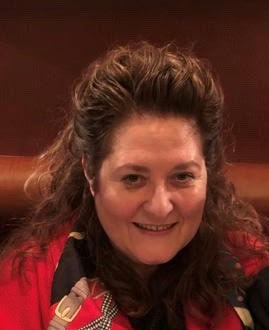
On Nov. 2 at 6 p.m., Prodromou will explore the issue in “Deconstructing Russia’s Ukraine War: Religion, Power, and the Geopolitics of Orthodox Christianity” at Fordham’s Lincoln Center campus. Her talk, the annual Economos Orthodoxy in America Lecture, is presented by Fordham’s Orthodox Christian Studies Center.
“What I want to do is peel away some of those layers and focus on the other features of the war, namely the importance of Ukraine as a space of contestation for Russia, vis-à-vis not only the hard security interests of the transatlantic alliance of NATO, but also the values that the alliance claims to represent,” said Prodromou, who is also faculty director of the Initiative on Religion, Law, and Diplomacy at Tufts University.
“Russia sees Ukraine not only in terms of its territorial importance and its existential security interests but also as a critical religious and cultural space for the protection of and projection of its own values and influence.”
To understand why culture plays as large a role as territory in the war, Prodromou said one need only observe the closeness between Putin and Patriarch Kirill of Moscow, Primate of the Russian Orthodox Church. Unlike the majority of Orthodox Church leaders around the world, Patriarch Kirill has pointedly not criticized the invasion.
“Not only has he refused not to condemn the war, but he has also been supportive of Vladimir Putin’s articulation for the rationale for the war. As a consequence, Patriarch Kirill has been subjected to withering criticism from other Orthodox Churches worldwide, including Bartholomew, the Ecumenical Patriarch of Constantinople,” she said.
“That has produced enormous tension and contestation within the Russian Orthodox church, as well. Not a lot of it is very public, but by virtue of reportage from priests, lay people, and experts in that church, it’s clear there is a grave disagreement within the Moscow Patriarchate about the support for the invasion.”
In her talk, Prodromou said she will explore the relationship the Russian Orthodox church and the Russian government have had going back decades. Although the church was violently suppressed during the Cold War, it initially flourished after the Soviet Union collapsed, having found a supportive partner in the government that followed. Patriarch Kirill’s support of the Ukraine invasion has clouded the picture of the partnership, in ways that Prodromou said echo how bishops in the Roman Catholic Church once allied themselves with autocratic leaders in Central and South America.
“That church/state closeness, in the form of the alliance between Putin and the patriarch, has led to a cynicism among many Russian Orthodox believers,” she said.
“Some speculate whether this is a church-state relationship that has been cemented, or whether it is just a partnership between Putin and Kirill. In a post-Putin and post-Kirill world, what will the relationship between the church and the state look like? That’s hard to predict.”
If there is a positive development to the current situation, it’s that Patriarch Kirill’s endorsement of the war has also thrust Orthodox Christianity in general into a brighter spotlight.
“That has led to a greater inquiry into Orthodox Christianity by scholars, policymakers, and media experts. That’s led to a far more nuanced understanding of the global footprint and the incredible pluralism within Orthodox Christianity” said Prodromou.
“It has moved aside the conventional, essentializing stereotype that all Orthodox Christianity is the same, regardless of local conditions.”
It’s also a good display of the value of “soft power.” In exchange for giving his blessing to the war, she said, Patriarch Kirill has found in Putin an enthusiastic proponent of the social conservatism that he favors.
“There are all these kinds of power in the power toolbox—hard, soft, sharp, smart, and I’ll be exploring these in my lecture,” she said.
“Especially in the 21st century, there’s a whole host of tools of power that can be deployed for influence building and projection of influence, whether by force or other means.”
George Demacopoulos, Ph.D., the co-founding director of the Orthodox Christian Studies Center, said he expects Prodromou’s talk will be enlightening for anyone who cherishes the value of free religious expression that has not been co-opted by politics.
“For years, Dr. Prodromou has been a champion of the twin causes of religious freedom and human rights, particularly in the Middle East,” he said.
“Few have her comprehensive understanding of the lived experience of religious minorities in fraught political situations.”
]]>Now all it needs is a home.
With help from two of the University’s most generous donors, the center is well on its way to getting just that—a dedicated space at the Rose Hill campus, designed around the heritage and iconography of Orthodox Christianity, that acts as a leaven for new academic opportunities and student engagement.
The center has been mainly about research and publications since its founding 10 years ago, said George Demacopoulos, Ph.D., the Father John Meyendorff & Patterson Family Chair of Orthodox Christian Studies and one of the center’s two founding directors. However, with this new multipurpose facility, “for the first time we’re really going to be able to focus on the undergraduate students themselves” by providing spaces for informal gatherings as well as events that enrich their education, he said.
He and the other founding director, Aristotle Papanikolaou, Ph.D., the Archbishop Demetrios Chair in Orthodox Theology and Culture, are based at the Rose Hill and Lincoln Center campuses, respectively, and the center has held events in various places at both campuses.
The center will hold all but its biggest events in its new dedicated facility, Demacopoulos said. Located in the 1,500-square-foot space in the basement of Loyola Hall, it will include offices, a conference room, a gathering area, and a small chapel with specially commissioned icons, as well as shelves for hundreds of donated volumes now sitting in boxes. Demacopoulos estimated that construction and renovation of the space could begin in late 2023, putting the center on path to a more rooted existence and doing away with constant searches for event spaces around the University.
The new facility will be a familiar place where students gather for study groups or stop in at the chapel for some quiet reflection. Academic experts and clergy will come for webinars, panel discussions, and other events that illuminate questions of Orthodoxy in the modern world. “It’s going to really be this multipurpose space that is focused on the Jesuit model of integrating learning with faith with service and so forth,” Demacopoulos said.
Housed within a Jesuit university, the Orthodox Christian Studies Center is uniquely positioned to help heal the rift between the Catholic and Orthodox churches—something that was especially appealing to the benefactors who are funding half of the new facility’s cost.
Donors Step In
William S. Stavropoulos, PHA ’61, and his wife, Linda Stavropoulos, have been giving back to Fordham for years, funding scholarships, athletics, and the renovation of Hughes Hall to house the Gabelli School of Business on the Rose Hill campus.
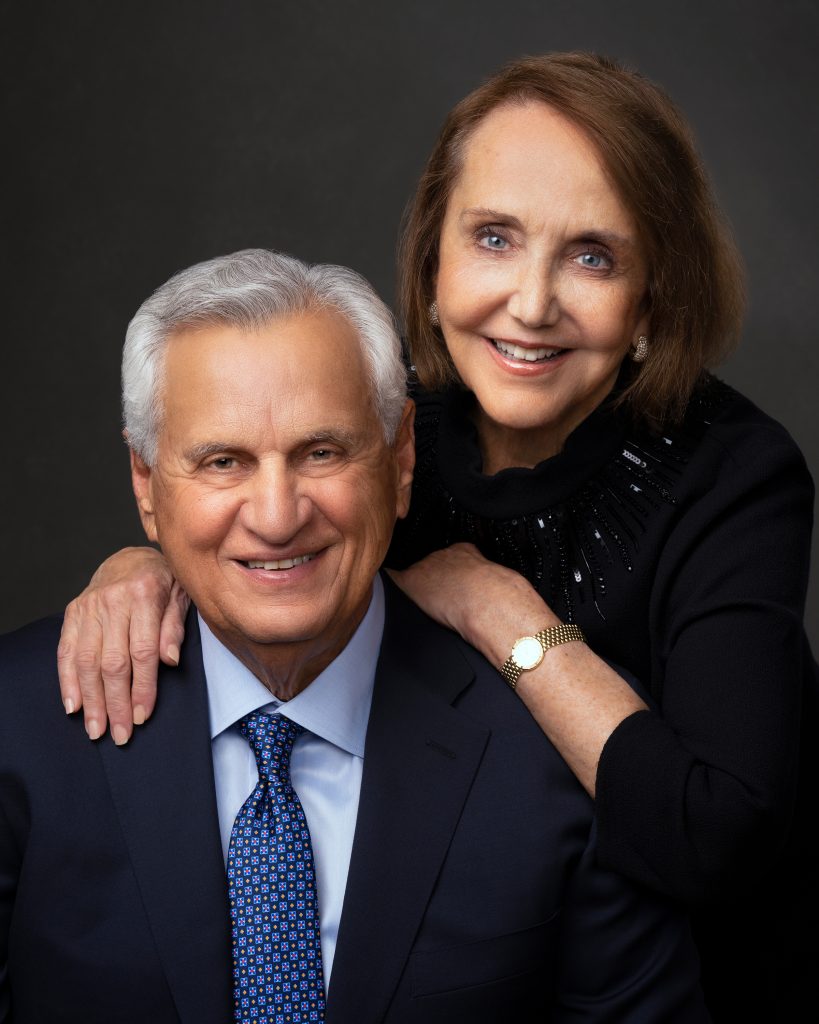
Today, in recognition of the “unbelievable great job” Father McShane did as president of the University, they are making a major gift toward the completion of the Joseph M. McShane, S.J. Campus Center, a key part of the University’s $350 million fundraising campaign, Cura Personalis | For Every Fordham Student. As part of that gift, they are also setting aside $250,000 for the construction of the Orthodox Christian Studies Center’s new home.
Their giving is rooted in William Stavropoulos’ Fordham experience, which was, in his words, “a game changer.”
“When I entered the University, coming from a rural high school with a graduating class of 15, I was not sure that I could measure up. I had real doubts in my mind that I could really make it,” he said in accepting the Fordham Founder’s Award in 2014. “But with Fordham’s incredible spirit and culture, they instilled into me a confidence and an education that truly transformed me.”
Professors took a personal interest in him, encouraging him to attend graduate school, he said in an interview. After graduating from Fordham’s College of Pharmacy (which has since closed) in 1961, he earned a doctorate in medicinal chemistry from the University of Washington and went to work at Dow Chemical as a research chemist. He retired from the company 39 years later—as chairman and CEO. He won several awards along the way, including one from the Society of the Chemical Industry recognizing the high ethical standards be brought to that industry.
Through their family foundation, he and Linda Stavropoulos have supported a range of efforts in health care, human services, and higher education—including Fordham’s Orthodox Christian Studies Center, in part because of its efforts to help bridge a centuries-old divide.
Healing a Schism
Christianity split into the Roman Catholic and Greek Orthodox churches nearly a millennium ago, in 1054, due to religious disputes and political conflicts. There have been many steps toward rapprochement between the estranged eastern and western churches—in 1964, Ecumenical Patriarch Athenagoras and Pope Paul VI met in the Holy Land for joint prayer, the first time the two churches’ leaders had met in more than 500 years. A year later, they agreed to revoke the churches’ mutual excommunication decrees dating from 1054.
In 2014, Pope Francis and Ecumenical Patriarch Bartholomew met for a service in Jerusalem to celebrate the meeting’s 50th anniversary; in a homily, the latter called for shedding “fear of the other, fear of the different, fear of the adherent of another faith, another religion, or another confession.”
Among the attendees were William and Linda Stavropoulos, who went with a group organized by the Greek Orthodox Archdiocese of America. “It was very moving, and encouraging, that the symbolism of that [meeting]could expand to something on a more tangible, everyday basis,” Linda Stavropoulos said.
The Orthodox Christian Studies Center promotes this cause through scholarship and events such as the Patterson Triennial Conference on Christian Unity. “I think these are times where we need that unity,” William Stavropoulos said. “It seems like we’re having polarization like I’ve never seen before in my lifetime, and I think this is one area where maybe we can get together. I think we’re better united than divided.”
As members of the Greek Orthodox church, he said, he and Linda Stavropoulos have “a natural affinity” for the Orthodox Christian Studies Center and believe in the work it’s doing. In 2014, they made a gift to help the center secure a National Endowment for the Humanities challenge grant in support of dissertation fellowships.
Fueling the Growth
This will be the first dedicated physical space the center has ever had, Demacopoulos said. Its large common area will enable informal gatherings by students who are pursuing the Orthodox Christian studies minor or who belong to the Fordham chapter of the Orthodox Christian Fellowship, a nationwide student organization.
Over the past several years, the center has fueled interest in Orthodox Christian studies, drawing students from as far away as California and Eastern Europe, he said. He expects the new facility to amplify this interest and draw more students to the Orthodox Christian studies minor—and not just Orthodox Christians, but also those from outside the tradition who want a better understanding of it.
“The center is not just theology; it’s the whole history, thought, and culture of the Orthodox Christian world, broadly understood,” Demacopoulos said.
By generating new interest in the Orthodox Christian Studies Center, the facility could prompt more faculty members to develop courses that fit the minor and create more opportunities for students to understand Orthodoxy across disciplines, he said.
“It’s going to lead students to see these connections in their other classes—when they’re taking their international business classes, when they’re taking their political science classes, when they’re taking their religion classes, when they’re taking their history classes,” he said. “It’s going to be a much more holistic academic experience for them.”
The new facility is a key priority of the center’s current $5 million 10th Anniversary Campaign: Engaging Orthodoxy, along with creating a research endowment for Orthodox Christian studies at Fordham.
To inquire about supporting the Orthodox Christian Studies Center or another area of the University, please contact Michael Boyd, senior associate vice president for development and university relations, at 212-636-6525 or [email protected]. Learn more about Cura Personalis | For Every Fordham Student, a campaign to reinvest in every aspect of the Fordham student experience.
]]>Parks, a native of Scarsdale, New York, who is majoring in International Studies and minoring in Orthodox Christian studies and Arabic, recently finished a 10-week summer internship with the Greek Orthodox Archdiocese of America’s department of Inter-Orthodox, Ecumenical, and Interfaith Relations.
Parks worked in the diocese offices in Manhattan last summer on an informal basis. This year, the internship, which is a joint effort between the Archdiocese and Fordham’s Orthodox Christian Studies Center, was formalized, with the center providing funding. It was enriching academically, intellectually, spiritually, and personally, he said.
“I have met some of the most caring and devoted people to the church at the Archdiocese. I have been mentored and cared for by some of the most accomplished people in their respective vocations, and the internship provided me the opportunity to learn about the operations of my church,” he said.
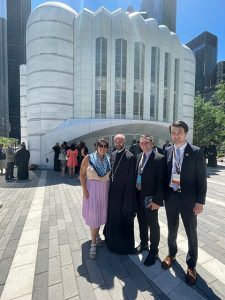
The internship was far more than fetching coffee or filing paperwork. The department that Parks worked for is tasked with finding ways for the Greek Orthodox Archdiocese of America, which counts nearly 477,000 members, to engage in dialogue with other members of both Christian and non-Christian communities.
That meant helping organize and participate in the 46th Biennial Clergy-Laity Congress, which was held in New York City in July, and the July 4 consecration of the Saint Nicholas Greek Orthodox Church and National Shrine, which was rebuilt at the World Trade Center after being destroyed on September 11, 2001.
Parks also worked to help the church clarify and amplify two major initiatives that are meant to illustrate how the church is in tune with contemporary concerns: Greening the Parish, which addresses environmental concerns, and civil rights.
It was no accident that someone his age was included in such high-level discussions, said Inter-Orthodox, Ecumenical & Interfaith Relations director Reverend Protopresbyter Nicolas Kazarian.
“It’s not just about mentorship; it’s also about having an ear to the ground, and hearing what the Orthodox youth are thinking about the church,” he said.
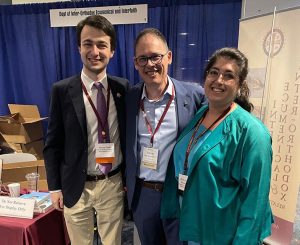
“What is racial reconciliation for an Orthodox 20-year-old student? We need to hear what they have to say about it because the institutional take on these issues is not always what is lived on the ground.”
Fordham students like Parks are invaluable for the church’s mission, he said, because the University is based in New York City just as the Archdiocese is, and its Jesuit heritage makes it the perfect environment for ecumenical dialogue. In the past, George E. Demacopoulos, Ph.D., and Aristotle Papanikolaou Ph.D., the Orthodox Christian Studies Center’s co-founding directors, directed students interested in ecumenical dialogue his way, so it made sense to formalize the connection.
“That’s how this started with Harry. He worked with us last year. He was already a brilliant student, and with his open-mindedness, he was a really great asset in the mission of our department,” he said.
Demacopoulos, the Father John Meyendorff & Patterson Family Chair of Orthodox Christian Studies, said the internship, which will be open to Fordham students every year now, is a natural outgrowth of the two institution’s partnership.
“We are delighted to build this partnership with the Ecumenical Office of the Greek Orthodox Archdiocese so that Fordham students can gain real-life experience with the labor and fruit of ecumenical work,” he said.
Parks is planning to spend the next two years researching the “cradle” and “convert” constructs of Greek Orthodox Christian identity. His own family offers lessons for both, as his mother was baptized into the church as a child, while his father converted from Catholicism as an adult. He noted that the day before the Clergy-Laity Congress, he attended the Young Adults League Conference, and it was there that things really clicked for him.
“One of the things that a lot of the speakers kept saying was, ‘If you have a desire to give of your talents and experience to your church, then don’t wait for the church to come and call you. Go and knock on the church’s door,”’ he said.
“I hope this internship program will be an avenue for undergraduate students at Fordham to knock on the church’s door and to be received openly and gratefully.
]]>“The time is right for a critical reassessment of the healing mystery, the healing power of penance in its fullest sense,” Bishop Findikyan said, addressing a masked audience at the University Church. The sacrament of penance is more than a periodic attempt to “make ourselves right before God,” he said.
“The Armenian Church’s explicit understanding of penance as a return from sorrow resonates with a sort of hopeful expectation that is in very short supply in these COVID times.”
The annual Economos lecture series has featured a variety of speakers, including archbishops, reverends, and professors. Last year, Fordham welcomed His Eminence Archbishop Elpidophoros of the Greek Orthodox Archdiocese of America to the Rose Hill campus. Bishop Findikyan is the first Armenian lecturer in the series.
In his speech “Returning to Normalcy and the Sacrament of Penance,” Bishop Findikyan analyzed the three key parts of this title—normalcy, sacraments, and penance—through the lens of the COVID-19 pandemic.
Over the past 21 months, people across the world have yearned for normalcy, said the bishop. But the pandemic has also given us the opportunity to reconsider what normalcy means.
“No one denies the pain, grief, death, and economic uncertainty, political polarization, and other afflictions that COVID has wrought. Yet … We would do well to question the instinctive assumption that pre-COVID, everything was jolly and that the challenge of our age is to return to that previous condition,” said Bishop Findikyan.
A large problem with our pre-pandemic lifestyle is “lust for contentment sought apart from God,” said the bishop. He compared this with the biblical story of Adam and Eve, who surrendered to their desire to eat fruit from a forbidden tree. They gained great knowledge, but lost their innocence.
“The normalcy that many of us desire nowadays is actually the illusion of good food, of delight to the eyes, of desire, and of wisdom. Consciously or unconsciously, I fear that many of us are looking for personal fulfillment apart from God … The pursuit of such a normal is sinful in the fullest, proper sense of the word, and that path is naked,” said Bishop Findikyan. “The only true path toward those blessed ideals is to be found in Jesus Christ, by means of the mystery of penance.”
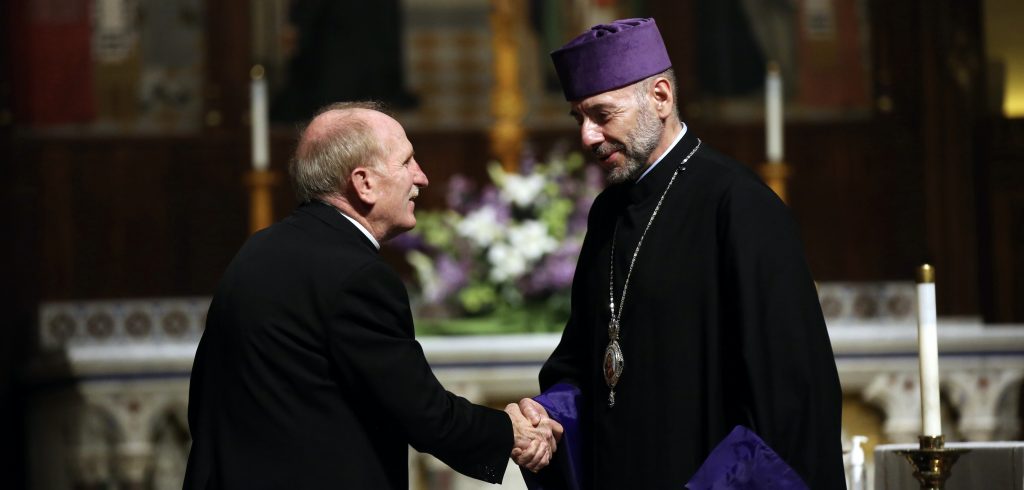
We are taught that penance is one of the seven sacraments, said the bishop, but the sacraments are more than a finite number of ceremonies.
“Our incorporation as the body of Christ occurs in every sacramental encounter, in every liturgical celebration,” said Bishop Findikyan. “And so with every one of those celebrations, those sacraments, when we dedicate ourselves to the Church’s liturgical life, we gradually come to an evermore intimate knowledge of God.”
The role of sacramental penance in the pandemic is important, said the bishop—and it should be much more than a “periodic” spiritual encounter.
“Repentance, penance, is that life-giving reconciling action by which we sinners regularly and continuously turn away from grief and come back to God,” said Bishop Findikyan. “Penance should not be an exceptional, occasional intervention, but a continuous journey of realigning one’s thoughts, actions, and commitment to Jesus Christ … It should be as regular and intrinsic to our spiritual lives as breathing is to one’s physical life.”
Bishop Findikyan described true penance as the “living, throbbing heart of Christian faith and life”—something that is lacking in many parts of American Christianity today.
“The sacrament of penance itself is the norm and the normal to which we aspire,” said Bishop Findikyan, “and to which we really should return, breath by breath, moment by moment.”
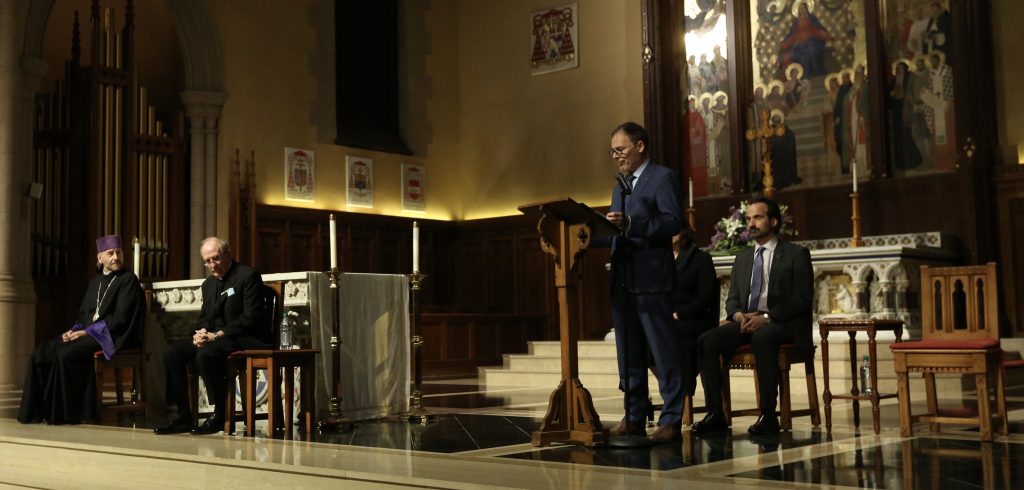
Bishop Findikyan is the first Armenian Church Primate to have been born in the U.S. The Texas-born bishop once studied chemical engineering, but he followed his spiritual calling to the priesthood and was ordained a priest in 1997. He is now a professor of liturgical studies at St. Nersess Armenian Seminary in Armonk, New York. He has lectured worldwide and served as the general editor of the Divine Liturgy pew book, a model for similar books in other churches and jurisdictions. He earned a master’s degree in musicology from the City University of New York and a doctorate degree in liturgy from the Pontifical Oriental Institute in Rome.
This year, in partnership with the Krikor and Clara Zohrab Information Center, the Orthodox Christian Studies Center has launched a new Postdoctoral Fellowship in Armenian Christian Studies. The recipient of the two-year fellowship will also serve as director of the Zohrab Information Center, housed by the Eastern Diocese of the Armenian Church of America Eastern Diocese.
The Economos Orthodoxy in America Lecture series has explored how the Orthodox tradition intersects with the American religious experience since its first lecture in 2004. Funding for the lecture is made possible by a landmark endowment from Christ and Anastasia Economos and a generous grant from the Nicholas J. and Anna K. Bouras Foundation, Inc. The lecture series is hosted by Fordham’s Orthodox Christian Studies Center.
A full recording of the lecture is below:
]]>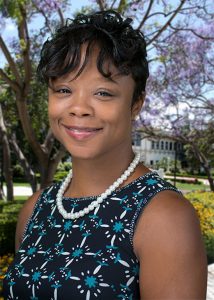
Michele Watkins, Ph.D., is at least halfway finished with her first book, tentatively titled “Deification of the Desacralized: Critical Correlations Among Womanist & Orthodox Theologies.”
Her project explores the ways Black women affirm their spiritual maturation and consider what it means to be one with God “while in flesh, in estranged bodies,” she said.
This includes the ways black women in positions of religious authority have navigated their relationships with men.
So one of the last things Watkins, an assistant professor of theology at and religious studies at the University of San Diego, plans to do is visit the Schomburg Center in Harlem to read one of the three chapters that was left out of Malcolm X’s 1964 autobiography.
In a chapter that was kept hidden from public view for five decades by Malcolm X’s co-writer Alex Haley, Watkins hopes to find the civil rights leader’s writings on the ways that Black male patriarchal norms clashed with his own goal of lifting up Black women within their communities, particularly in his work with the Organization of Afro-American Unity.
Thanks to a NEH Faculty Fellowship from Fordham’s Orthodox Christian Studies Center, Watkins has the resources to make this visit happen. She is one of five scholars awarded fellowships this year by the center, which began its fellowship program in 2017.
George E. Demacopoulos, Ph.D., the Father John Meyendorff & Patterson Family Chair of Orthodox Christian Studies and co-director of the Orthodox Christian Studies Center, said Watkins and the other fellows illustrate both the breadth and depth of the research that the center supports.
“[Watkins] has this really innovative way of bringing this ancient, Eastern Christian notion of theosis as a resource for doing womanist theology,” he said.
“Her winning this fellowship demonstrates that Orthodox Christian studies has a much broader appeal than people generally assume and that there are points of connection between Orthodox Christian studies and the whole array of Christian theological work.”
Watkins, who is also an elder in the United Methodist Church, is no stranger to Fordham, having spoken at the center’s Patterson Triennial Conference in 2019. She was still pleasantly surprised to be chosen.
“It’s a blessing to know there are partners in the church universal, and to have the confidence of other colleagues who think your work is meaningful,” she said.
Her book, which she plans to finish next June, brings together two ideas: theosis, which is an Orthodox Christian conception of the process of coming into union with God, and womanist theology, a concept that revolves around the experiences and perspectives of Black women, popularized by activist and writer Alice Walker in 1982.
“What does theosis mean for those whose very personhood, whose embodiment, whose spiritual integrity has been divested of its sacred value through social structures such as white supremacy?” she said.
“I’m looking at [Black women’s] inner sacred lives and how they’re striving to affirm their own personhood, their own spiritual maturation, and the social transformation of their communities.”
The book has its roots in Watkins’ Ph.D. dissertation, but it has taken on a new life recently, as she has expanded the scope to include the theological ideas of Black men like Malcolm X. The expansion is necessary, she said, because of events such as the 2017 white supremacist riots in Charlottesville, Virginia, and the rise of conservative evangelical theology. Christian spaces are becoming increasingly attractive as places to express hate, she said.
“There were members of the Christian right in Charlottesville that were so-called Orthodox,” she said.
“[The book] is a way of reclaiming Christianity as a space that is not going to be hospitable to hate.”
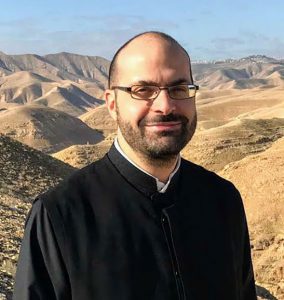
Watkins is joined by four other fellows.
Michael Azar, Ph.D., an associate professor of theology and religious studies at the University of Scranton who earned his doctorate at Fordham in 2013, is working on a project titled “Reframing Christian-Jewish Relations in Light of Orthodox Christianity in the Holy Land.”
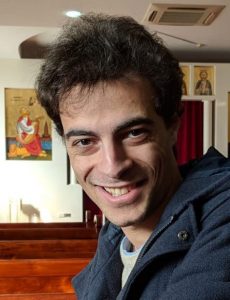
Samuel Kaldas, Ph.D., a lecturer at St Cyril’s Coptic Orthodox Theological College, is the center’s Coptic Fellow. He is a major contributor to the Archive of Contemporary Coptic Orthodox Theology, an online repository of primary sources of contemporary Coptic theology in English translation.
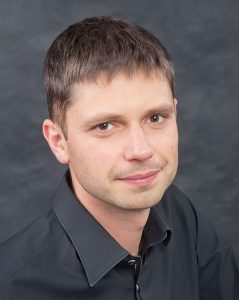
Konrad Siekierski, a Ph.D. candidate in theology and religious studies at King’s College, is this year’s NEH Dissertation Completion fellow. His doctoral thesis, “A Vow to Go: Religion, Reunion, and Roots in Armenian Pilgrimage,” is based on 10 years of ethnographic research and examines the different forms that pilgrimage takes today in Armenian culture.
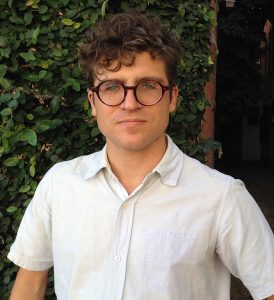
Jesse Arlen, a Ph.D. candidate at the University of California, Los Angeles, is the center’s first fellow in Armenian Christian Studies. His fellowship is the result of a new partnership the center has established with the Eastern Diocese of the Armenian Church of America. He will use it to revise his dissertation for publication as a book. The dissertation, “A Window into the Tenth Century: The Life and Literary Works of Anania of Narek,” uses a pivotal but understudied figure to offer new insights into some of the major regional developments of the era from the Islamicate world to Byzantium.
Demacopoulos said that this year’s cohort of fellows is notable for several reasons. It’s the first time the faculty fellowships have been awarded to theologians rather than historians or anthropologists. Kaldas is also the first Australian to receive the award, marking a geographical expansion as well.
“The quality and the diversity of the applicants just shows the increasing reach of the center in the mindshare of academics around the world,” he said.
]]>
Speaking from the pulpit of the University Church on the Rose Hill campus, the archbishop traced the history of the Orthodox Christian and Catholic churches’ recent rapprochement and drew upon it for lessons for moving forward.
“Today, more than ever, we need to think not only about our differences, but how we can anticipate our churches being reunited through a rediscovered experience of communion,” Archbishop Elpidophoros said in a lecture that was broadcast live via Zoom and archived on YouTube. The event was part of the Economos Orthodoxy in America Lecture series, which was renamed this fall in gratitude for Christ and Anastasia Economos’ generous support of the Orthodox Christian Studies Center.
“[It is] a communion,” the archbishop said, “based on mutual recognition, a common confession of faith, the acceptance of diversity, liturgical sharing, synodality and conciliarity, mission and evangelization, subsidiarity, renewal and rebirth, and finally, the role of the papacy.”
The archbishop, who in May 2019 was elected the eighth archbishop of America since the establishment of the Greek Orthodox Archdiocese in 1922, touched on many of the issues that the two churches have been engaged in since Pope John Paul II’s 1999 visit to Romania on the invitation of Patriach Teoctist of the Romanian Orthodox Church.
That dialogue has proceeded in fits and starts, he said, but it is in and of itself a gift from God.
“The transformation of the dialogue of charity into the dialogue of truth, that is to say, the shift from gestures of rediscovered fraternity to an exchange of theological programs, marks the fruitful maturation and growing confidence to tackle the heart of our divisions,” he said.
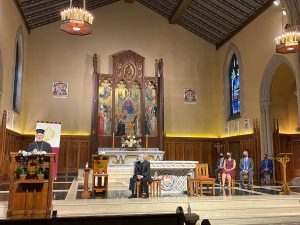
Thorny issues include reconciling the different ways Orthodox Christians and Catholics speak about the origins of the Holy Spirit, the possibility of celebrating Easter on the same date, and whether non-Orthodox spouses who marry Orthodox Christians should be allowed to receive communion.
Unfortunately, he said, it is getting harder, not easier, to resolve the conflicts that revolve around these issues. The movement behind unity, he said, is facing an identity crisis, in part because culture wars and geopolitical developments are influencing the conversations between Catholics and the Orthodox churches, and Orthodox Churches have been unable to speak with one voice. The future of Orthodox-Catholic relations depends on the condition of inter-Orthodox relations, he said.
Nonetheless, he maintained hope.
“I am convinced that the future and mission of Roman Catholic and Orthodox relations here in the United States is to continue bear witness to God’s presence in the world, faithful to the spirit of Jerusalem, that we receive as a legacy,” he said.
Reflecting on the Economos’ recent gift, Christ Economos said the center’s mission to advance awareness and knowledge of Orthodox Christianity in modern public discourse is near and dear to their hearts.
“At these most difficult times in our world, the need is great for understanding and respect in all dialogue, and as we heard tonight, reconciliation, which is the most important of all,” he said, in remarks following the archbishop.
“The center, through lectures, such as this one, as well as scholarly publications, student initiatives, and Public Orthodoxy, the online blog, creates many opportunities for such important dialogues to unfold and advance.”
]]>
Ashley Purpura, Ph.D., GSAS ’14, an assistant professor of religious studies at Purdue University, has been awarded the center’s NEH Faculty Fellowship. Elena Romashko, a Ph.D. candidate in religious studies at the Georg-August-Universität in Göttingen, Germany, has been awarded the center’s NEH Dissertation Completion Fellowship. And Febe Armanios, Ph.D., a professor of history at Middlebury College, has been awarded the center’s Coptic Fellowship.
The research they are engaged in varies significantly, from theology of gender to art history, to a modern historical study of Christian media in the modern Middle East.
“What I love about that is that diversity really showcases what we understand Orthodox Christian Studies to be, as this broad network of methodologies and disciplines that connect scholars who wouldn’t ordinarily be in communication with one another,” said George Demacopoulos, Ph.D., the Father John Meyendorff & Patterson Family Chair of Orthodox Christian Studies and co-director of the center.
“But because of this common core of history, thought, and culture of the Orthodox Christian world, you have these projects that end up being connected through the center.”
Aristotle Papanikolaou, Ph.D., the Archbishop Demetrios Chair in Orthodox Theology and Culture and co-director of the center, agreed, noting that in the three years since the first fellowship was offered, applications have come from around the globe.
“One of the things we really look for, and it’s really evident in all three of these fellows, is some kind of engagement with Orthodox Christianity in conversation with contemporary thought,” he said.
A Space for Feminist Critique
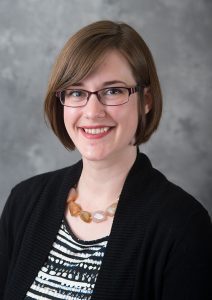
Contributed photo
Purpura earned her Ph.D. in the history of Christianity at Fordham. Her first book,
God, Hierarchy, and Power: Orthodox Theologies of Authority from Byzantium (Fordham University Press, 2018) offered a rethinking of the development and maintenance of “hierarchy” as a theological concept. She will use her fellowship to work on her second monograph, tentatively titled Sanctifying the Patriarchal Woman: (mis)Representing Gender Equality in Orthodox Christian Tradition.
Her hope is the book will provide a space for conversation around feminist claims and how they clash with aspects of Orthodox Christianity. Most major religions, including those that have historically been patriarchal, are engaged in these conversations, but Orthodox Christianity has lagged, she said.
“I’m not trying to recover a tradition that hasn’t been recorded, but just point to the spaces where the tradition that we have is problematic if we do theologically believe, as Orthodox Christians, that women are spiritually and equal to men, made in the image and likeness of God,” she said.
“We need to talk about gender as something central to our theological understanding.”
The Role of Religion During Disaster
Romashko, a native of Belarus, will use her fellowship to begin writing her dissertation, “Coping with Disaster: Visual Narratives of Vernacular Religion in the Post-Chernobyl World.”
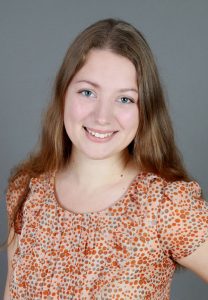
Contributed photo
In it, she plans to analyze Russian Orthodox icons depicting the Chernobyl disaster and Russian Orthodox churches built to commemorate it in Belarus. Growing up there, she said, she took for granted the ways in which the disaster is internalized in daily life. When she moved to Germany, she found very little had been written about what she lived through.
“All the research that I could find on Chernobyl was about Ukraine, and it was written mostly about either how it medically affected people, or what it meant for the breakdown of the Soviet Union,” she said, noting that she’s focused on areas of the country that are still populated occupied today, and not the “frozen zone” surrounding the destroyed power plant.
“Very little is written about Belarus, even though 23% of the area that was contaminated was there.”
As part of the dissertation, she will direct special attention to memorial art such as The Savior of Chernobyl, which was used to convey fears and challenges caused by nuclear contamination. She’s especially interested in the representation of women, children, and people with disabilities.
“How do they describe how this completely technological disaster should be depicted through images such as Mary and Jesus, or similar things? Because it was truly an atheistic country at the time when it all started,” she said.
“What can it tell us about how religion deals with crisis, how religion deals with ecological pollution, with things like radiation, which we cannot perceive through the senses?”
Harnessing Media for Faith
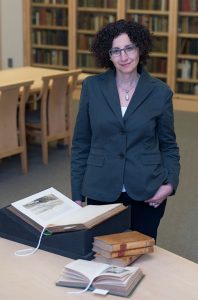
Contributed photo
Armanios will use the Coptic Fellowship to write “Coptic Orthodox Television: A Modern History,” which focuses on the history of Coptic channels in Egypt and the Coptic Christian diaspora. It is the final section of her book manuscript, Satellite Ministries: The Rise of Christian Television in the Middle East.
It’s a project she began 10 years ago when she began examining how television played a role in the Coptic Christian Orthodox community in Egypt.
“I started asking questions about the origins of what Christians in Egypt were watching, what channels were they drawn to, and lo and behold, this opened a Pandora’s box of a much larger project about the special history of Christian television in the entire Middle East,” she said.
“Who is starting these channels, what is their programming like, what are they trying to achieve with their audiences, what kind of message are they trying to put out there in terms of their identity, their community, politics?”
Demacopoulos said this year’s cohort of fellows, which was chosen by an independent team of evaluators, is all women, just as it was last year. This is a happy coincidence, he said.
“It’s an indication that when you go into the fellowship process looking for new and creative projects, you end up selecting perhaps a different kind of recipient then you might have 20 or 30 years ago,” he said.
“All three of these projects are really speaking to the modern church even though they’re drawing in certain ways on the history of Orthodox thinking and tradition. They’re all absolutely engaged with questions of the modern church.”
]]>Ibrahim, a sophomore at Fordham College at Rose Hill, and Floriana Boardman, a junior political science major, have revived the Rose Hill chapter of Fordham’s Orthodox Christian Fellowship (OCF), a student-led group that helps students explore their faith.
A Significant Expansion
The fellowship, which is part of the official campus ministry of the Orthodox Episcopal Assembly of North America, has chapters at the Rose Hill and Lincoln Center campuses. Thanks to Ibrahim and Boardman’s efforts, membership in the Rose Hill chapter has expanded significantly.
In October, Father Elias Villis, a priest at Christ Our Savior Greek Orthodox Church in Rye, N.Y., joined the group for a liturgical service at the Keating Blue Chapel. The group also invited Joni Zavitsanos, a painter influenced by Byzantine iconography, to campus to discuss her exhibit, “Distant Relatives: Ancient Imagery of the Classical Pagan Past and the Modern Byzantine Icons,” which is on view at the Walsh Library’s Museum of Greek, Etruscan and Roman Art.
Ibrahim, who is minoring in Orthodox Christian studies, comes from a family with Coptic Christian and Greek Orthodox roots. She was so interested in learning more about her faith that upon graduation from high school, she attended summer classes at CrossRoad Institute, an Orthodox College and Seminary in Boston. The minor, which is comprised of classes in disciplines as varied as classics, history, philosophy, and theology, situates the faith within a larger context of other faith traditions.
“Once I decided I was really interested in studying art history, I felt like New York was the best place for me,” she said.
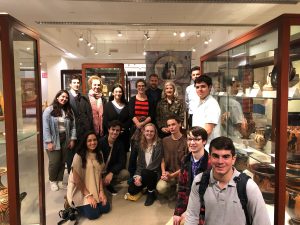
“While I originally wanted to minor in religious studies, Orthodox Christian studies ended up being the perfect thing for me, because I knew I wanted to further understand my own faith in the context of other religions.”
A Place Where Faith is Taken Seriously
The fellowship is advised by Orthodox Christian Studies Center co-founders George Demacopoulos, Ph.D., and Aristotle Papanikolaou, Ph.D. Demacopoulos, the Fr. John Meyendorff & Patterson Family Chair of Orthodox Christian Studies, said the fellowship group and the Orthodox Christian studies minor, which was first offered in 2008, have always been key to the center’s efforts to reach students.
“Fordham really is a place where we want you to take your faith seriously. We don’t want college to be a period in which you sort of give up on church,” he said.
“We’re also the only center of our kind in the United States, and most of what we do is very high end, academic research. Students can combine intellectual pursuits with learning about how to be more socially active, and how to grow and maintain their faith tradition as well.”
The fellowship group has been active since the days before the center was officially formed.
“It’s the millennial group that’s really leaving institutional churches and organized religion, and part of the center’s M.O. is to provide a climate of information, knowledge, and education about Orthodox Christianity,” said Papanikolaou, the Archbishop Demetrios Chair in Orthodox Theology and Culture.
“One of the center’s missions is to provide outreach to students who are disaffiliating for a variety of reasons. They’re either unfamiliar with the works the church is involved in, or they have issues with the way institutional religions deal with various issues. We are one of the only places within the Orthodox Church in the U.S. that is willing to discuss controversial issues that are meaningful to this age group.”
Being a Part of the Journey
Father Villis said he was heartened by Ibrahim and Boardman’s efforts, which brought him back to campus after a year-long hiatus. Before that, he’d made the 17-mile drive to Rose Hill for 15 years to conduct liturgical services for students, often at 10 p.m.
“The students really respect that, because they see I’m serious. I’m unloading and loading all this liturgical stuff, and doing a full, formal liturgy at ten at night,” he said.
“I challenge them on their faith. I say, ‘These are the years that 90% of our people leave the faith. I want to be a part of that journey with them. I left the church as a teenager, and became an evangelical, born-again Christian before I came back. I’m very passionate about remaining and staying true to the church, because I went full circle with my journey.”
Liturgy and Academia, Complimenting Each Other
Although fellowship participation has waxed and waned depending on the enthusiasm of the students enrolled at Fordham in given year, Demacopoulos said participation in the minor has remained consistent, with an average of 10 to 15 students per year. Four years ago, the center helped developed some new academic offerings, and today, students can take courses such as Byzantine and Western Art, Medieval Jerusalem, and Russian Short Fiction. With more resources, he and Papanikolaou are confident they can increase enrollment to 50 students annually.
“It’s ideal for the business, communications, or biology majors who are not really interested in theology per se and would never choose it as a major, but who are Orthodox and want to learn more about their faith tradition,” he said.
Boardman, who is studying in Granada, Spain, this semester, had been active in her church through high school and is looking forward to participating in and organizing service projects with the group when she returns in the spring.
“I was slightly nervous before attending college that I would lose my connection with God and the church, but Orthodox Christian Fellowship has helped me grow in my faith beyond any other Orthodox activity that I have ever experienced,” she said.
Ibrahim said she hoped a vibrant OCF, as they call it, would make Fordham more attractive to prospective undergraduates of Orthodox backgrounds.
“Orthodox Christians are a minority in the U.S., so it’s important that people are aware that there are other forms of Christianity. We’re different, but not we’re not so different, and the whole purpose for the center, in my eyes, is the interfaith dialogue between Catholicism and Orthodoxy,” she said.
“And it’s important to have a presence on campus and a place where Orthodox students can go and feel welcome.”
]]>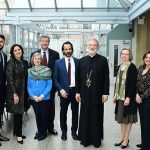
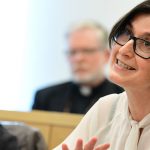
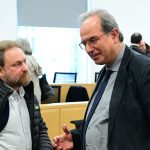
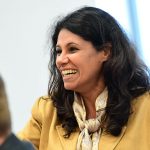
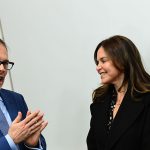
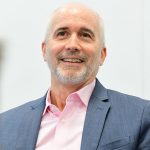
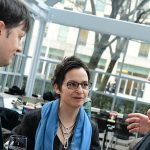
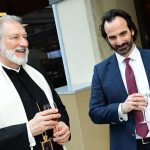
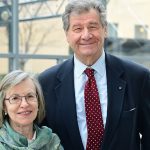
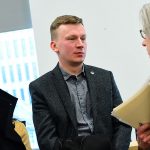
The Orthodox Christian Studies Center welcomed 28 scholars and journalists to Fordham from March 20 to 22 for the first seminar in its five-year research initiative on Orthodox Christianity and human rights.
The meetings brought together an international group of experts in Orthodox Christianity from several disciplinary backgrounds and areas of specialization to discuss the major issues surrounding Orthodoxy’s complicated and often contentious relationship to human rights discourse.
According to center co-director George Demacopoulos, the goal of the project is to “flood the field” with publications analyzing multiple facets of Orthodoxy’s relationship to human rights: the history and theology of human rights in the Orthodox tradition, as well as current engagements with human rights among Orthodox communities in Eastern Europe and the Middle East. Over the next five years, the participating scholars will not only publish their research in academic books and journals but, in consultation with journalists, will disseminate their work through popular media to promote a more nuanced public understanding of Orthodoxy and human rights.
The three-day seminar, held at the Lincoln Center campus, featured sessions offering a broad overview of the current state of the field.
Kristina Stoeckl of the University of Innsbruck introduced participants to the Russian Orthodox Church’s recent statements on human rights, especially in debates in the United Nations over the family and “traditional values.” Stoeckl said that over the last decade, Russia has become the global leader in challenging Western understandings of universal human rights and has sought to transform human rights language to promote its “traditional values” agenda.
Michael Hanna of the Century Foundation led a discussion on Christians in the Arab world, where their status as religious minorities has led to a different relationship to human rights than in Orthodox-majority countries like Russia. For Middle Eastern Christians, negotiating questions of human rights is fundamentally an issue of survival, not one of values, he said.
The center also welcomed as a guest speaker Samuel Moyn, a leading historian of human rights at Yale University, who offered a historical overview of the origins of 20th-century human rights discourse through the work of Roman Catholic “personalist” philosophers like Jacques Maritain and their promotion of human dignity. Discussion turned to Maritain’s links to Russian Orthodox personalists who fled to Paris following the Bolshevik revolution, as well as to the role of Lebanese Orthodox thinker Charles Malik in drafting the 1948 Universal Declaration of human rights.
Major support for the project is provided by the Henry Luce Foundation with additional support provided by Leadership 100.
–Nathaniel Wood
]]>Photos by Bruce Gilbert
Six distinguished faculty members were honored on March 13 for their achievements in securing externally funded research grants at the third annual Sponsored Research Day on the Rose Hill campus.
The University Research Council and Office of Research presented the Outstanding Externally Funded Research Awards (OEFRA) to recognize the high quality and impact of the honorees’ sponsored research within the last three years and how their work has enhanced Fordham’s reputation—both nationally and globally.
Faculty were honored in five separate categories and were given awards by Jonathan Crystal, Ph.D., interim provost, associate vice president, and associate chief academic officer.
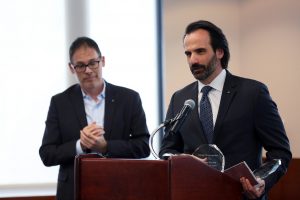
Humanities: George Demacopoulos, Ph.D., professor of theology and the Father John Meyendorff & Patterson Family Chair of Orthodox Christian Studies, and Aristotle Papanikolaou, Ph.D., professor of theology and the Archbishop Demetrios Chair in Orthodox Theology and Culture
Demacopoulos and Papanikolaou, co-directors of Fordham’s Orthodox Christian Studies Center, shared the award for the Humanities category. Demacopoulos has received awards totaling $928,000 in the past three years, while Papanikolaou has received a total of $888,000. Last April, they secured two grants totaling $610,000 that will be used to fund a multiyear research project devoted toward the issue of human rights.
Interdisciplinary Research: Su-Je Cho, Ph.D., Associate Professor of Childhood Special Education at the Graduate School of Education.
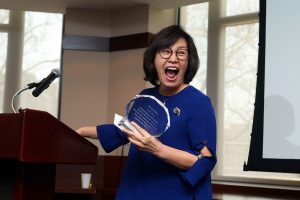
Cho, an expert in the field of special education, has received two external grants totaling more than $2.7 million from the U.S. Department of Education and other foundations in the past three years. Her interdisciplinary project will produce approximately 40 professionals in special education and school psychology, which are the greatest shortage areas in the field of education.
Junior Faculty Research: Sarit Kattan Gribetz, Ph.D., Assistant Professor of Theology
Gribetz has received six external grants totaling $55,000 from the prestigious National Endowment for Humanities and other foundations in the past three years. Her research focuses on the history of time in antiquity and the important role that religious traditions and practices have played in the history of time. In 2017, she received the Manfred Lautenschlaeger Award for Theological Promise, alongside nine other young scholars, from the University of Heidelberg in Germany.
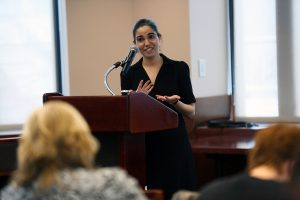
Sciences: Steven Franks, Ph.D., Professor in Biological Sciences
Franks has received five grants totaling more than $5.3 million from the National Science Foundation in the past three years. The results of the studies funded by these grants have been published in 17 peer-reviewed scientific publications since 2016. The papers, which are in high impact journals such as Evolution, Molecular Ecology, and American Journal of Botany, have been widely cited. His work has helped to advance our understanding of responses of plant populations to climate change and the genetic basis of these responses.
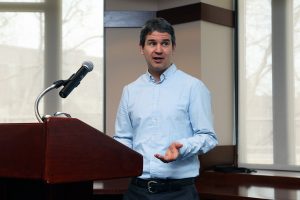
Social Sciences: Janna Heyman, Ph.D., Professor of Social Service and Endowed Chair of the Henry C. Ravazzin Center on Aging and Intergenerational Studies at the Graduate School of Social Service
Heyman, who is also director of Fordham’s Children & Families Institute center, has received 10 grants totaling more than $3 million from a variety of external foundations in the past three years. Last year, she co-edited, along with Graduate School of Social Service Associate Dean Elaine Congress, D.S.W, Health and Social Work: Practice, Policy and Research (Springer, 2018). She has taught social work research, advanced research, and social welfare policy courses in Fordham’s master of social work program, as well as policy implementation in the doctoral social work program.
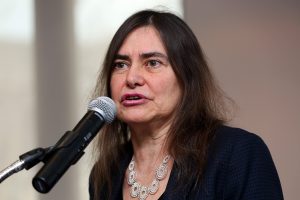
Organized by the Office of Research and the University Research Council and sponsored by the University Research Compliance Council and the Office of Sponsored Programs, the daylong event featuring a keynote speech by Denise Clark, Ph.D., Associate Vice President for Research Administration, University of Maryland at College Park.
A forum of science researchers featured Thomas Daniels, Ph.D., director of the Louis Calder Center, Deborah Denno, Ph.D, director of the Neuroscience and Law Center, Silvia Finnemann, Ph.D., director of the Center for Cancer, Genetic Diseases, and Gene Regulation, J.D. Lewis, director of the Urban Ecology Center, Amy Roy, Ph.D., director of the Pediatric Emotion Regulation Lab, and Falguni Sen, Ph.D., director of the Global Healthcare Innovation Management Center.
]]>Asavei, a lecturer at Charles University’s Institute of International Studies in Prague, joins the center thanks to a grant from the National Endowment for the Humanities. She is the author of Aesthetics, Disinterestedness, and Effectiveness in Political Art (Rowman & Littlefield, 2018), published just this month.
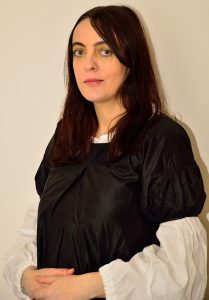
Speaking via Skype from Tbilisi, Georgia, where she conducted research, Asavei said she was excited that the fellowship would allow her to explore lesser known connections between art, politics, and spirituality. In particular, she plans to focus on political resistance through religious, neo-Orthodox art in post-communist Romania. She will publish her findings as a journal article.
Romania, which is where Asavei was born and raised, was home to an art scene that blossomed after the 1989 fall of Communist leader Nicolae Ceaușescu. Artists interested in the spiritual dimension of life, irrespective of the political status quo, generated works that were political in the sense that they addressed humanity at large, but didn’t try to polarize people into “us and them,” camps, Asavei said. Her plan is to bring to bear her expertise in philosophy and phenomenology to figures such as Romanian sculptor and painter Marian Zidaru, whose work has been traditionally pegged as religious, neo-orthodox art.
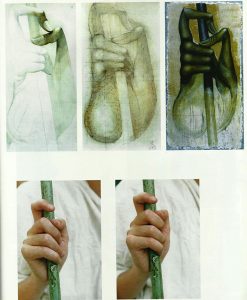
“There is idea that the artistic neo-avant-garde doesn’t assimilate neo-orthodoxies, because according to these views, neo-orthodox artistic production is not political,” she said.
“I want to show that, actually, all these forms of artistic production instantiated a form of ‘prophetic activism.’ It was not like a straightforward resistance, like this oppositional type of resistance, but more like a spiritual resistance.” She credited artist and scholar Tom Block with informing her analysis.
Asavei compared this prophetic activism to the ways in which Jewish and Roma groups who were confined to ghettos practiced their religion in silence, in defiance of authorities who’d banned such practices. And just as important, she argues that artists are to this day continuing the practice, in deference to past tradition. Romanian painter Constantin Flondor, for instance, still incorporates a symbol of bread common to Orthodox Christianity in his work.
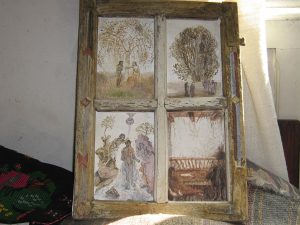
“This was not about resisting only Ceaușescu and his cultural policy and his imposed national Communist cultural production. Their so-called spiritual resistance is lasting. Even now, they are still producing the same kind of artworks, the same kind of performances, and engaging many communities of people,” she said.
She said she was drawn to Fordham’s center because of its embrace of scholars who are able to tap into multiple disciplines.
“For me, there is no need to bridge these two cultural fields [of religion and art]because they are already so much intermingled,” she said.
Asavei also has a personal connection to the work, as a member of the Orthodox Christian Church.
“The Orthodox tradition I came from is improving more and more with this advent of contemporary culture, and contemporary art especially, in terms of openness to other sets of concerns, like social justice and caring for the excluded and the disenfranchised, such as refugees,” she said.
“So it’s not only about my Orthodox community versus some other religious community, it’s about sharing a set of concerns from an Orthodox kind of framework.”
George E. Demacopoulos, Ph.D., the Fr. John Meyendorff & Patterson Family Chair of Orthodox Christian Studies and co-director of the center, said Asavei’s integration of philosophy, art, and political science makes her research especially appealing.
“We are thrilled to offer our first faculty research fellowship to Dr. Asavei, whose research offers a powerful testimony to the ways in which Orthodox Christian Studies illuminates so many dimensions of our contemporary world,” Demacopoulos said.
]]>